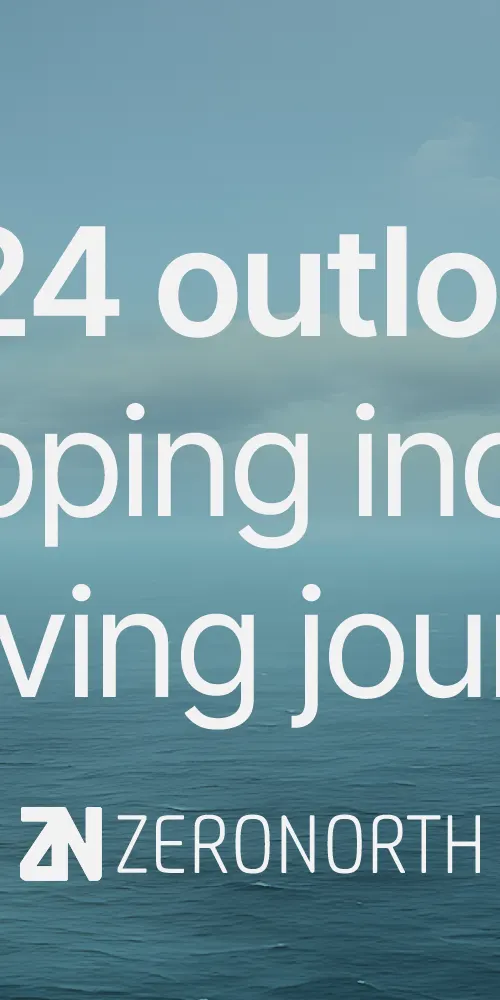2024 outlook: The shipping industry's evolving journey
As we approach the new year, our CEO Søren Meyer shares his outlook on the unfolding landscape of innovative technologies, environmental regulations, and collective aspirations in 2024.

As we look ahead to the next 12 months, one of the most obvious things to expect is an increase in operational complexity for shipping organisations. This is due to stricter environmental regulations coming into force, such as the EU-ETS, which will impact the entire global trade value chain. More importantly, this is just the beginning. The regulations that enter into force from January represent the floor, not the ceiling, of global decarbonisation ambition; a reality that should prompt all of us into action.
While complexity might be increasing, it is important to remember that every challenge also presents an opportunity. The rising cost of compliance will incentivise the industry to take decisive action when it comes to decarbonising vessels and voyages.
Increasing regulations will encourage companies to think smarter about how they can operate more sustainably. This includes investing in technologies which can optimise operational efficiencies and redefining how they use data to achieve their commercial and sustainability goals.
By connecting multiple data points across a single interface, the ZeroNorth platform can interpret data to generate thousands of recommendations to optimise voyage plans, reduce fuel consumption and emissions, and increase earnings. Equipped with the right data recommendations, organisations will be able to improve their performance forecasting and make better-informed decisions that benefit both profit and planet.
I believe that the other huge trend in the digital arena for the coming year will be the rapid increase of the use of High Frequency Data (HFD) to enable the more connected, transparent, and collaborative decision-making required by new regulations.
HFD has already started to enable the next phase of shipping’s digital transformation, as it can unlock greater visibility on all aspects of vessel performance, as well as enabling a more strategic approach to managing compliance, emissions reporting, and analytics. This will help to drive meaningful emissions reductions in the drive to making global trade green.
Following the outcomes of this year’s MEPC80 and COP28, there are also bound to be changes in how shipping companies operate, as we work together in earnest to turn our climate ambition into action and help drive greener global trade. This is certainly the mission of ZeroNorth, as we look to continue building upon our relationships with key stakeholders within the global trade ecosystem to drive a unified approach that reduces shipping’s impact on the planet.
The challenge of getting to zero emissions is more than any one company, country or organisation can tackle alone. This is why it is so important to forge partnerships across the entire maritime value chain, working together to find solutions that drive emission reductions forward and accelerate the green transition. At ZeroNorth, we truly believe there is great power in collaboration, which is why we work with other organisations such as Energy LEAP, the Global Maritime Forum, Mærsk Mc-Kinney Møller Center for Zero Carbon Shipping as well as our working group Impact Today to come together with others across the global trade ecosystem to help drive meaningful impact on the journey to zero emissions.
In the next 12 months, it is important that we work as a collective to turn our climate ambition into action, shaping a greener future for the shipping industry and wider global trade ecosystem.